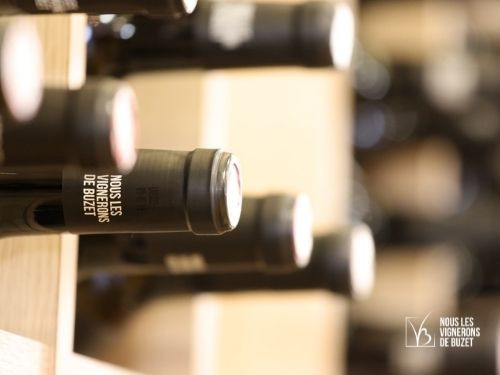Organic wine and its labels: we explain everything
15/04/2022
The European organic wine label "Agriculture Biologique":
Organic wine : what does the label mean?
When we talk about organic wine, we are most often talking about a wine with the Agriculture Biologique label. In France, organic wines are most often indicated by the "AB" logo or by the Eurofoil for wines marketed in Europe.
What does the organic wine label involve?
This label commits winegrowers to respecting a set of specifications specific to organic agriculture. A winegrower who works his vineyard organically must :
- limit the use of inputs
- favour the use of natural and renewable resources (such as organic fertilisers for example)
- strictly restrict the use of synthetic chemical products (pesticides for example)
So much for the grapes, the essential matter.
What are the specification?
Since a European regulation of 2012, the specifications of the AB label also regulate the wine-making practices, in order to avoid the arrival of wines made from organic grapes but using techniques that would be far from a natural process.
The addition of "sulphur" or sulphites in particular - to be precise we should speak of sulphur dioxide or SO2 - is more restricted in organic wines than in more conventionally produced wines. However, organic wine may contain added sulphites (see the article "Can organic wine contain sulphites?").
Other winemaking techniques are excluded when making organic wine, such as electrodialysis (tartaric stabilisation).
The "AB" mark is the exclusive property of the Ministry of Agriculture. Winegrowers who have been awarded the label are certified by state-approved certification bodies. Before being able to use the AB logo and to be certified, the winegrower must cultivate his grapes for three years according to the strict specifications that govern organic farming, without being certified. This is known as the "conversion" period. Once the label is awarded, it is then regularly checked by independent bodies.
Labels for wines respecting sustainable development:
Many labels claim to respect the principles of sustainable development. In fact, the existing labels for wine mainly take into account the vineyard and vine growing aspect. In addition to the Organic Agriculture label, we can mention
- the HVE label: this indicates High Environmental Value farms. It is therefore the whole farm that is labelled, and not just part of the plots.
- the Bee Friendly label: this label was created by beekeepers' associations to mark products produced by agriculture that respects the protection of bees. It was opened to wine in 2014, thanks to the involvement of the Vignerons de Buzet in co-constructing the specifications of the Bee Friendly label for the wine industry with beekeepers.
Biodynamic wine labels:
The best known of the biodynamic wine labels is the Biodyvin label. It was created in 1996 by the Syndicat international des vignerons en culture biodynamique. For this label, the wines are made from grapes cultivated biodynamically, i.e. using only natural inputs and respecting the cycles of Nature, hence the predominant use of the lunar and solar calendars.
The Demeter label has two levels: a "wine from Demeter grapes" label, also cultivated according to biodynamic principles, and a "Demeter wine" label integrating vinification with - among other things - low SO2 (sulphur) levels.
Natural wine labels:
By "natural wines" is generally meant wines with low "sulphur". To date, there are no specific labels for these wines without added sulphites. It is therefore often mentions on the label of the wine indicated by the winemaker that distinguish these so-called "natural" wines.
Some labels are linked to biodynamic farming and include in their specifications instructions for wine making which limit the use of added sulphites to small quantities or even prohibit them.
In addition, many winegrowers who claim to produce "natural" wines voluntarily remain outside the certification and labelling process.
